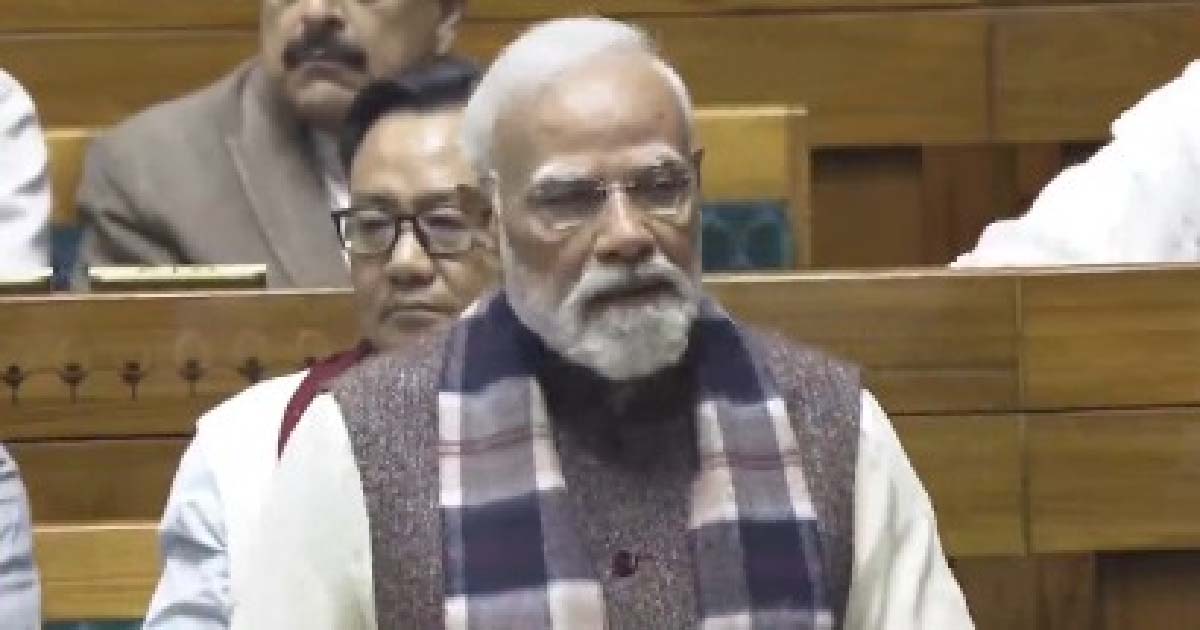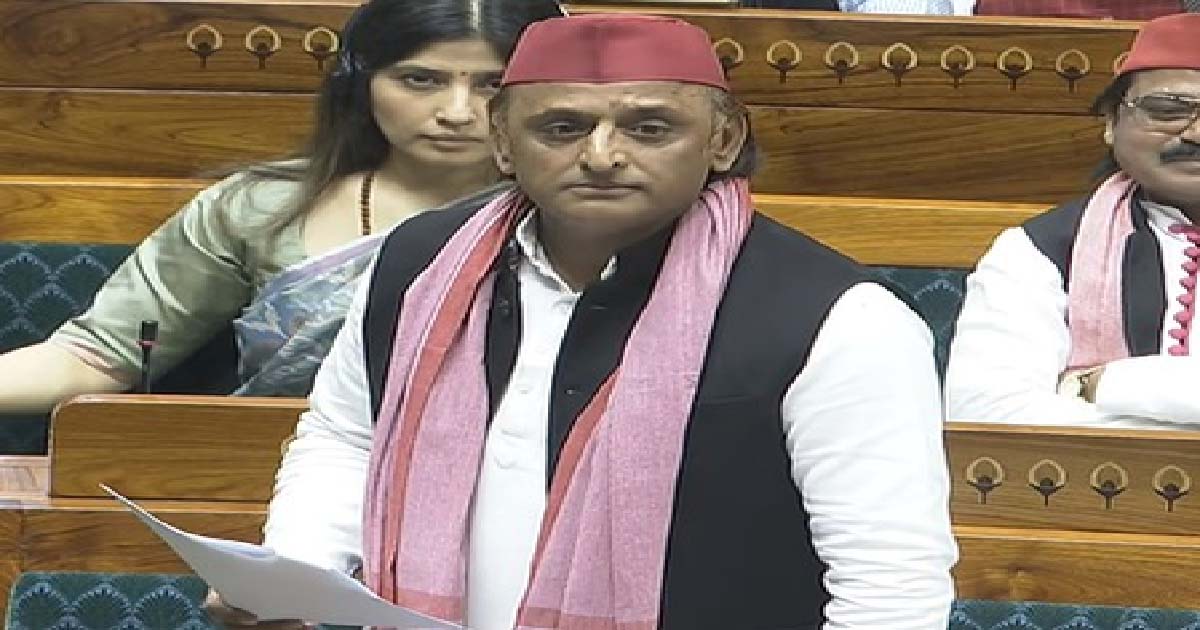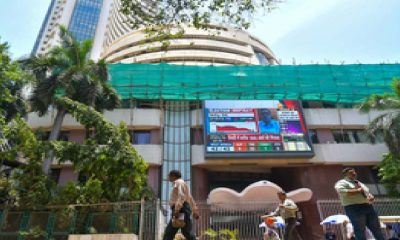National News
PM Modi’s popularity secured BJP’s win in Maharashtra, Haryana; Rahul’s Constitutional narrative failed: Survey

New Delhi, Dec 20: The BJP demolished the Congress and other Opposition parties in the Maharashtra and Haryana Assembly elections.
The party romped to victory in both states and formed the governments there recently.
The Matrize Survey has come up with some insights into what led to the BJP’s significant triumph in these states, despite the party’s relatively lower performance in the 2024 Lok Sabha elections.
The survey has highlighted several factors, including the influence of Prime Minister Narendra Modi, the Congress-led Opposition’s failure to pose any challenge to the BJP effectively.
The agency has also spotlighted shifts in voter sentiment between the two elections.
The Congress’ bid to capitalise on the narrative of ‘constitutional changes’, also failed to make any impact in the Assembly elections.
The survey was carried out between November 25, 2024 and December 14, 2024 with a sample size of 76,830 in Maharashtra and 53,647 in Haryana.
Key findings from the Matrize Survey
1. Enduring popularity of PM Modi
Despite the BJP winning only 240 seats in the Lok Sabha elections this year, PM Modi continued to enjoy massive popularity among voters in both Maharashtra and Haryana, says the survey. His image as a strong and influential leader remained intact. This is a very important finding, as the survey reveals that voters in both states maintained an unwavering trust in PM Modi, which played a pivotal role in the Assembly election outcomes. Around 55 per cent of voters surveyed in Maharashtra found a jump in PM Modi’s popularity. Similarly, 53 per cent of Haryana voters surveyed saw growth in PM Modi’s charisma.
2. Jolt to Congress’ narrative on the Constitution
One of the most significant factors identified in the Matrize Survey was the setback to the Congress’ narrative which its leader Rahul Gandhi spun during the Lok Sabha elections. The Congress had built a narrative that the Modi government intended to change the Constitution. This claim seemed to have garnered some traction initially during the parliamentary elections. However, it failed to create any impact during the Assembly elections in Maharashtra and Haryana. In both states, the Congress’ attempts to push issues such as constitutional changes, farm laws and wrestlers’ ‘problems’ were largely ineffective. Voters did not view these issues as significant during the Assembly elections, contributing to a shift in support towards the BJP.
3. Voter perception of Congress leadership
Another important finding of the survey is major lack of trust in Congress MP Rahul Gandhi, who was seen as the face of the Opposition, in Maharashtra and Haryana. His failure to present a credible alternative to PM Modi also led to the poor show by the Opposition. Voters expressed doubts about the Congress’ leadership, with Rahul Gandhi being perceived as disconnected from ground realities, especially in comparison to PM Modi’s strong, decisive image. This factor played a significant role in BJP’s commanding victory in these states.
4. Shift in voter sentiment between Lok Sabha and Assembly elections
This is also suggested that many voters in Maharashtra and Haryana, who made the mistake of not voting for the BJP during the Lok Sabha elections, corrected their decision in the Assembly polls. A key reason behind this shift was the growing confidence in PM Modi’s leadership and the central government’s actions, which voters felt contributed positively to their lives. The Opposition’s inability to offer a coherent and convincing alternative led to a clear preference for the BJP in the state elections.
5. BJP’s strategic messaging and leadership
The Matrize Survey also highlighted the powerful impact of BJP’s messaging during the Assembly elections. The slogan “Ek Hain to Safe Hain (When united, we are safe)” found approval of voters, especially in Maharashtra and Haryana. This narrative emphasised stability, national security, and economic growth under PM Modi’s leadership, positioning BJP as the safer choice. On the other hand, the Congress’ divisive rhetoric and internal leadership struggles only served to alienate voters. The failure to challenge BJP’s narrative effectively was evident, especially given the public’s disenchantment with the Congress’ internal factionalism.
6. Local leadership and organisational factors
In Haryana, the leadership change from Chief Minister Manohar Lal Khattar to a new set of faces also contributed to the BJP’s success. The survey found that the switch in leadership helped BJP regain trust, with 44 per cent of respondents acknowledging that the leadership change had a significant positive impact. Moreover, the presence of strong local BJP leaders and a well-organised campaign helped the party build a solid base, further ensuring its victory.
7. The role of government schemes and local support,
The BJP’s focus on local issues and welfare schemes also played a crucial role in obtaining voter support. In both states, the BJP government’s initiatives, particularly in the fields of agriculture, infrastructure, and rural development, had a positive effect. These schemes impressed the voters, who felt they had benefited from government policies.
With all these details in view, the Matrize Survey has given a clear picture of why BJP won the Assembly elections in Maharashtra and Haryana.
Several interlinked factors contributed to this triumph: The enduring popularity of PM Modi and the continued trust in his leadership, a significant setback to the Opposition’s narrative, particularly the Congress’ attempt to capitalise on constitutional changes, which failed to make any impact in the Assembly elections, voter correction of their previous Lok Sabha mistake, especially in light of the BJP’s successful governance and message of stability, and the BJP’s effective use of leadership changes, messaging, and welfare schemes to consolidate support.
Crime
Palghar Crime: 40-Year-Old Constable Arrested For Allegedly Raping Woman Inside Kasa Police Station

Palghar, Maharashtra, Dec 08: A 40-year-old police constable has been arrested for allegedly raping a woman inside the Kasa police station in Maharashtra’s Palghar district, officials said on Monday.
According to a senior official from the Palghar rural police, the incident took place last week when the woman had visited the station to record her statement in connection with an ongoing case. The constable allegedly assaulted her within the premises.
Following a complaint filed by the woman, a case of rape was registered and the constable was arrested on Sunday, officials confirmed.
In the aftermath of the incident, the in-charge of the Kasa police station has been transferred. Further investigation is underway.
National News
PM Modi recalls how Vande Mataram defied British oppression, stood ‘like a rock’

New Delhi, Dec 8: Prime Minister Narendra Modi, on Monday, invoked the enduring spirit of ‘Vande Mataram’ while initiating a day-long discussion in the Lok Sabha to mark the 150 years of the national song.
He described it as a hymn that stood “like a rock” against British oppression and continued to inspire unity across generations.
Tracing the song’s journey from its composition by Bankim Chandra Chattopadhyay in 1875 to its role in the freedom struggle, PM Modi said ‘Vande Mataram’ became a current of emotion that bound the nation together.
“Even when crises like the coronavirus pandemic struck, the spirit of ‘Vande Mataram’ continued to connect the country. Today, as we march towards an ‘Atmanirbhar Bharat’ (Developed India), this hymn remains a source of strength,” he noted.
The Prime Minister quoted Mahatma Gandhi, who had described ‘Vande Mataram’ as a song that united the nation.
“Pujya Bapu (Mahatma Gandhi) said ‘Vande Mataram’ connects us. It is the dream of today’s generation to build a prosperous India, and this song continues to inspire that vision,” PM Modi said.
He emphasised that the hymn was more than just words — it was a mantra of sacrifice, resilience, and unity.
From the days of colonial bans, when people were punished for speaking or printing the words, to the sacrifices of countless freedom fighters who embraced martyrdom with ‘Vande Mataram’ on their lips, the song has remained a symbol of defiance and hope.
PM Modi urged the Parliament to ensure that the legacy of ‘Vande Mataram’ is preserved and passed on to future generations.
“This is not just a tribute to history but a reaffirmation of our democratic spirit. The lessons of the past must continue to guide our future,” he said, adding that the 150th anniversary was an opportunity to restore pride in a hymn that has been the heartbeat of Bharat.
Initiating a day-long discussion on 150 years of ‘Vande Mataram’ in the Lok Sabha, PM Modi noted that ‘Vande Mataram’ stood like a rock and inspired unity despite British oppression.
“When ‘Vande Mataram’ completed 100 years, the nation was chained by the Emergency. At that time, the Constitution was throttled and those who lived and died for patriotism were pushed behind bars,” he said.
“The Emergency was a dark chapter in our history. Now we have the opportunity to restore the greatness of ‘Vande Mataram’. And I believe this opportunity should not be allowed to pass,” PM Modi added.
National News
‘BJP wants to own everything’: Akhilesh Yadav in LS during Vande Mataram debate

New Delhi, Dec 8: Samajwadi Party chief Akhilesh Yadav on Monday accused the BJP of trying to “own everything and claiming exclusive nationalism”, which was in fact “Rashtra-vivadi (anti-national).”
In his address during a special session of the Lok Sabha to commemorate 150 years of ‘Vande Mataram’, he said the national song belongs to every Indian and cannot be politicised.
Yadav said, “When in Kolkata, Congress leaders and Rabindranath Tagore sang this, it reached the common people, and when people fought against the British, the slogan of Vande Mataram played a major role in uniting them.”
He added, “When the British got panicked by this slogan, they used to put people in prison under anti-national cases. From 1905 to 1908, Vande Mataram was banned by the British, but they were not able to stop our revolution, and our freedom fighters kept taking it forward.”
Targeting the ruling BJP, Yadav said, “The ruling party in our nation wants to own everything. The things they do not have, they want to own. When the organisation was being formed, and the chairman who was chosen, there was debate on whether the BJP would go on the secular path, the socialist path or not. The chairman appointed at that time chose the secular and socialist path. On his stage, using Jaiprakash Ji’s picture, they tried to spread that they would follow his footsteps.”
Urging that Vande Mataram must be understood beyond symbolism, he said,
“Vande Mataram is not just to sing but to act as well. The Vande Mataram, which connected everyone in the independence movement, today, some people are trying to break the nation; they are still trying to do so. Vande Mataram is not a political subject or something to show off, but these BJP leaders act like it’s a song made by the BJP. People who did not take part in the independence movement — how will they know the value of Vande Mataram?”
In one of his strongest lines, Yadav said, “They are not ‘Rashtravadi’ (nationalist); they are ‘Rashtra-vivadi’ (anti-national). Back then, the British used to divide and rule; today, also some people are accepting that path of divide and rule.”
Continuing his criticism, he added, “The truth is that only a few people truly recited Vande Mataram from the heart. Some even worked as spies and informers for the British against those freedom fighters. Vande Mataram is not for fake politics.”
Yadav also accused the BJP of trying to appropriate icons: “Our party ended communal politics from where the BJP started it. They started putting Ambedkar’s picture in their election meetings after facing losses from the SP.”
-

 Crime3 years ago
Crime3 years agoClass 10 student jumps to death in Jaipur
-

 Maharashtra1 year ago
Maharashtra1 year agoMumbai Local Train Update: Central Railway’s New Timetable Comes Into Effect; Check Full List Of Revised Timings & Stations
-

 Maharashtra1 year ago
Maharashtra1 year agoMumbai To Go Toll-Free Tonight! Maharashtra Govt Announces Complete Toll Waiver For Light Motor Vehicles At All 5 Entry Points Of City
-

 Maharashtra1 year ago
Maharashtra1 year agoFalse photo of Imtiaz Jaleel’s rally, exposing the fooling conspiracy
-

 National News1 year ago
National News1 year agoMinistry of Railways rolls out Special Drive 4.0 with focus on digitisation, cleanliness, inclusiveness and grievance redressal
-

 Maharashtra1 year ago
Maharashtra1 year agoMaharashtra Elections 2024: Mumbai Metro & BEST Services Extended Till Midnight On Voting Day
-

 National News1 year ago
National News1 year agoJ&K: 4 Jawans Killed, 28 Injured After Bus Carrying BSF Personnel For Poll Duty Falls Into Gorge In Budgam; Terrifying Visuals Surface
-

 Crime1 year ago
Crime1 year agoBaba Siddique Murder: Mumbai Police Unable To Get Lawrence Bishnoi Custody Due To Home Ministry Order, Says Report






















